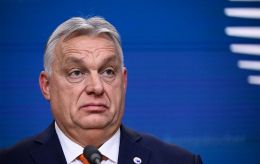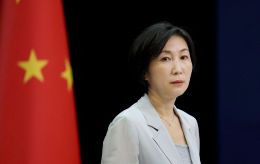Poet and soldier Serhiy Zhadan: Memory of the fallen should motivate, not demoralize
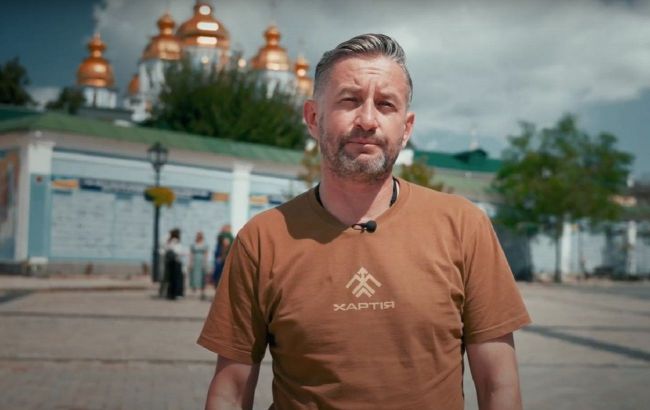 Photo: Serhiy Zhadan (Ministry of Veterans Affairs)
Photo: Serhiy Zhadan (Ministry of Veterans Affairs)
The importance of preserving the memory of Ukraine’s fallen heroes, creating memorial sites, and the significance of soldiers in the country’s history – an interview with Serhiy Zhadan for RBC-Ukraine.
Caring for those who have lost loved ones in the war is a vital part of honoring the memory of the fallen. It is important that families are not left to deal with bureaucratic problems on their own but feel the support of the state and society.
Another important aspect is the creation of memorial places where people can pay their respects to the deceased. These can be memorials, cemeteries, parks, alleys, or specially designated spaces where people can gather to share their emotions and memories of the fallen.
RBC-Ukraine interviewed the writer, poet, musician, and now serviceman Serhiy Zhadan about what preserving the memory of fallen defenders should look like.
– In 2020, in one of your columns for Memorial Day, you mentioned the opening of a memorial at the site where tankers died near Pisky in the Donetsk region. "Sooner or later, each of us tries to talk about it. Sometimes falsely, sometimes painfully." What does the memory of the fallen mean to you? Has anything changed in terms of perception since then?
– What has changed is that the memorial is now in occupied territory. I’m not sure if it has been preserved. Therefore, memory now becomes the space where the memory of these soldiers is kept. And it’s very important that it is preserved. And when we return to that place and others like it, places of strength and pain where our history is formed, we should not forget them. Memory today becomes the platform where we preserve things that will need future reflection, our attention, and our love.
– What should this platform look like? What kind of attention does this memory require?
– It must be well-kept. This is like a garden, park, or forest, which we must visit regularly. Memory should not be overgrown or neglected. It needs our attention, presence, and constant reflection.
– The strategic goal of memory policy is to prevent fallen heroes from becoming mere statistics but rather preserve the historical significance of each defender’s act and valor for the nation's preservation. What should the memory policy look like, in your opinion?
– I agree that it should not become mere statistics because, behind numbers, you can’t see faces, hear voices, or know biographies and contexts. When we talk about the fallen, we need to understand that they leave behind memories, their loved ones, families, and people who loved them. And this connection must continue.
The video: “Memory Protects”: Veterans called to remember the fallen (youtube.com/Ministry of Veterans Affairs)
So that there remains a continuity of love, respect, and dignity between those who have "gone" and those who remain. That’s why the policy should be focused not on numbers and statistics but on people. Each of them had their own hopes, aspirations, faith, love, anger, and rage. And all these things remain about them; they leave reflections of stars that have gone out but still delight us with their light, giving us some hope and expectations.
– How can we convey this continuity of love and remembrance to each individual and to society as a whole?
– The key factor here is humanity – talking about the living and the fallen as people, not just abstract soldiers. There is a tendency in society right now to view the military, the army, and defense forces as something abstract. This can be understood, but it shouldn’t be justified or developed.
Some boys and girls are fighting with weapons in their hands. We love, respect, and support them, but we are not inclined to think deeply about the fact that each of them has their own biography, their burdens of experience, fears, doubts, faith, and hopes. So, when we talk about soldiers and the army, it is crucial to remember that these are living people.
– The full-scale war has affected every family in Ukraine: some have lost loved ones, others have family members currently at the front. How do we preserve the memories, emotions, and feelings and pass them on to future generations?
– I agree that this war touches everyone. Even if someone is trying to demonstratively or consciously distance themselves, that’s more of a gesture of denying the obvious. Because this war truly affects all of us.
An important aspect here is establishing communication between the military and civilians. If you look at our social networks, everyone addressing the military says, “Come back!” This often doesn't reflect reality. For instance, in Kharkiv, the frontline is right outside the city. The military is essentially fighting in their hometown. They are not leaving; they are home, and there is no need for them to “return.” This is very important to understand.
Some civilians view the army as something existing in a different reality. Right now, we are in Kyiv near Mohyla Academy, and there is no war here. And that’s a good thing. But the war exists in this country, and the military is here. They don’t go to some other reality or cross some border; they remain within our country. It’s important to grasp this.
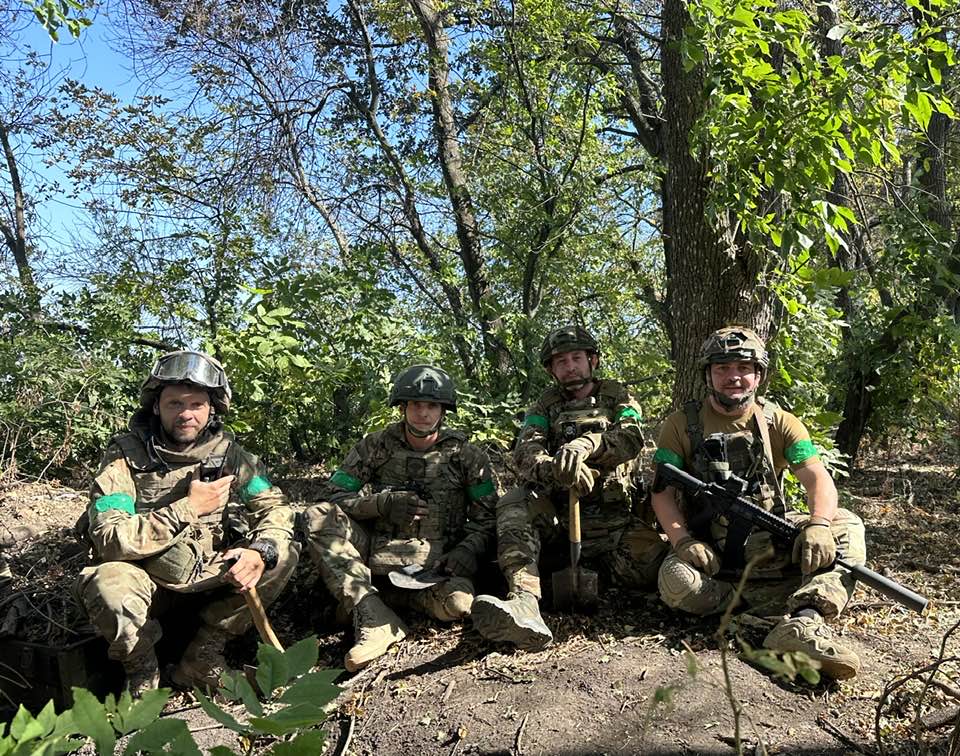
Photo: Serhiy Zhadan joined the ranks of the Ukrainian Armed Forces (facebook.com/serhiy.zhadan)
As for how to pass this on to future generations, we need to talk more, communicate, and listen to what the military has to say. They need platforms to voice their opinions and stories so they don't feel ashamed or alienated. This needs to be done today, not after the war is over when hundreds of thousands of veterans suddenly appear on our streets.
We need to talk today and listen today. It’s a mutual process. There should be a demand from society, and there should be no alienation or distancing from the military.
– Will there be such a demand after the victory?
– It can be stimulated, and it needs to be deepened. There is a lot of work to do here because many processes won’t start unless we talk about them, unless we remember them.
– Do you think there is already alienation?
– People who are on the frontline and people who have never been there have different experiences. Even if you compare people living in frontline cities to those in the rear, their experiences are also very different. I’m saying this without judgment or assigning labels. All these experiences are important, and they shouldn’t be devalued or diminished. We just need to understand that some people today need more attention, involvement, and empathy because they face greater risks and a higher level of threat and danger.
– You are now also a serviceman. In your opinion, how should gratitude and respect for the living, and honor for the fallen, be measured?
– There should be a sense of worthy treatment, not as just another statistic, but as a person who risked their life and health, who had the courage to defend their country. Also, memory is important for the military, who hope, believe, and count on the fact that what they are doing will not vanish or dissolve in history.
At the same time, this is just as important for the entire society, even if it doesn't fully realize it yet. Because the experiences being formed on the front line today shape all of us, the society, the country. And we will be what we perceive ourselves to be today, what we think of ourselves and how we position ourselves. Therefore, the question of memory is important for all of us. It’s crucial to find the right tone in which we talk about soldiers and civilians, about those who remain on the front line and those who return from it.
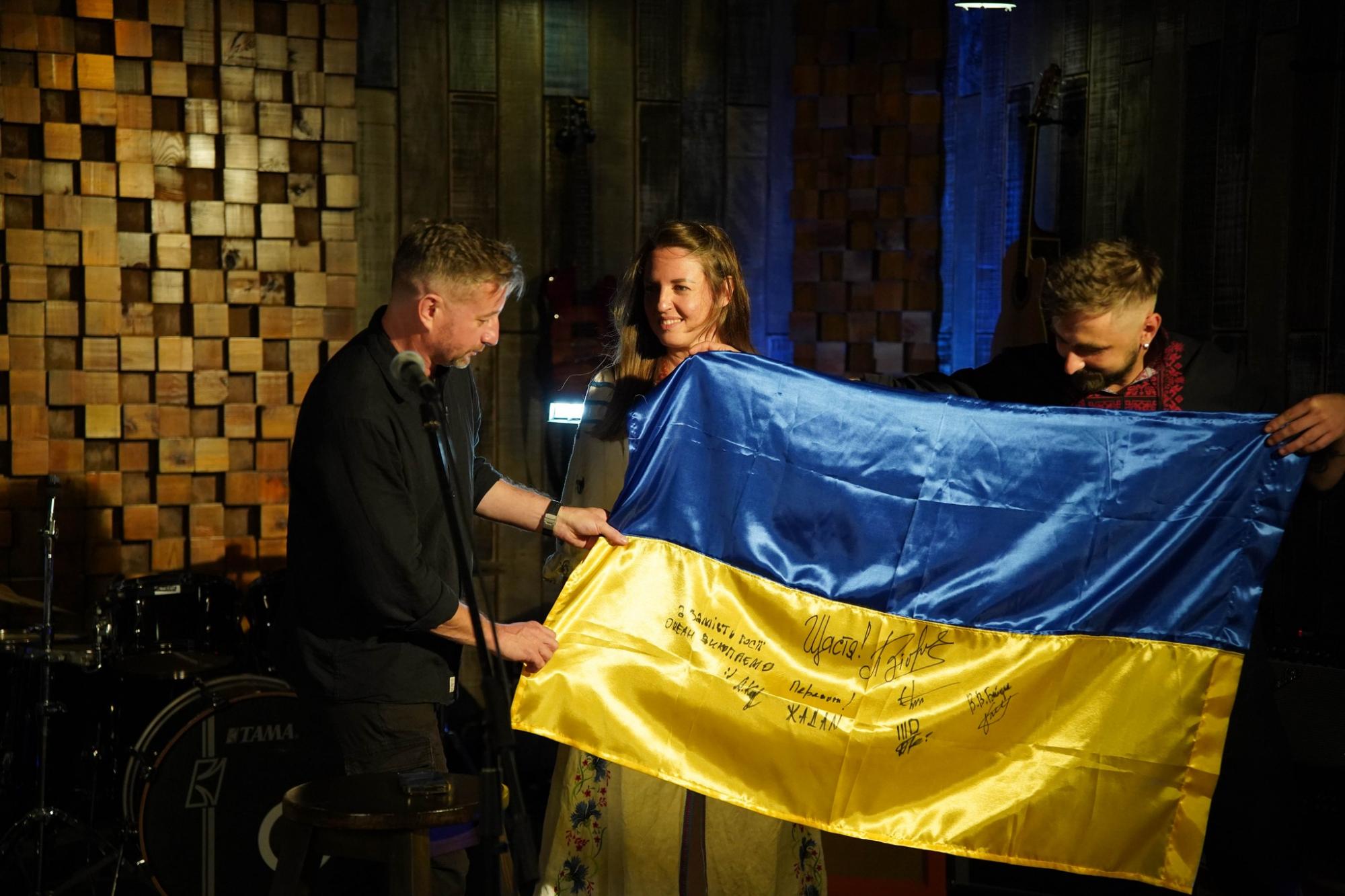
Photo: The issue of remembering soldiers is important for the entire society – Serhiy Zhadan (facebook.com/serhiy.zhadan)
– Is it time for this? Many of our compatriots believe that all efforts and funds should go to the front right now, not to the creation of a National Military Memorial Cemetery.
– It’s definitely time. Because a military cemetery is not something secondary. Recently, in Kharkiv, we buried one of our brigade’s soldiers in the Alley of Heroes. This shows respect. Family members, comrades, and fellow soldiers come there, and they see that a person they knew, fought with, loved, and respected lies here.
This person hasn’t disappeared, even though they are physically gone, buried in the ground. Memory remains, their presence remains, and the sense of connectedness remains. Such alleys must be places of strength, love, and dignity.
This is very timely. We should not postpone this for the future. There is a great risk that something will be forgotten, erased, or deformed, that we will lose focus, and that priorities will shift. Things that are very important, painful, and keep us grounded today might simply be forgotten or blurred tomorrow. And that would be the worst outcome.
– What role should creative people play in preserving the memory of the Russian-Ukrainian war and every Defender who gave their life for the survival of the nation?
– They can be recorders or reporters. They can talk about these things and draw attention to them. They have a voice and the ability to bear witness. And I think that should not be taken lightly.
– And what about your role as an artist and serviceman?
– In our brigade, we launched Radio Khartiya. We largely did this to give our soldiers a platform to express themselves so that they could speak, and people in the rear could know who was fighting, see real, living faces, hear their voices, tones, strength, moments of weakness, irony, sarcasm, and moments of deep sincerity.
At Khartiya, we are about to launch a project dedicated to the memory of our fallen soldiers. We want to create segments about each one of them. To ensure that no one is forgotten, that we remember everyone, and that we preserve each of them's memories. This is incredibly important for everyone – for the families of these soldiers and for their comrades.
– You communicate with the families of the fallen. What do they say? What do they lack now?
– This winter, before I was mobilized, I toured the country with the band “Zhadan and Sobaky,” raising funds for the military. A woman from Troieshchyna in Kyiv wrote to me, saying that her son had been killed. He used to hum our song “Troieshchyna” when going on missions. He said, “Nothing will happen to me because I have a protective song.” He died. For his mother, it’s a huge blow. She wrote, “Can I come to your concert with a photograph of my son, and you will place it on stage? My son never got to attend one of your concerts. It was his dream to see you live.”
She’s come to our concerts several times now. We place the portrait on stage, and in this way, he is with us. For us, it’s a great honor and joy to support a person in this way, remembering the young man. And the fact that thousands of people who attend the concerts hear about him for the first time see his face in the photo and remember his story – that to is about memory.
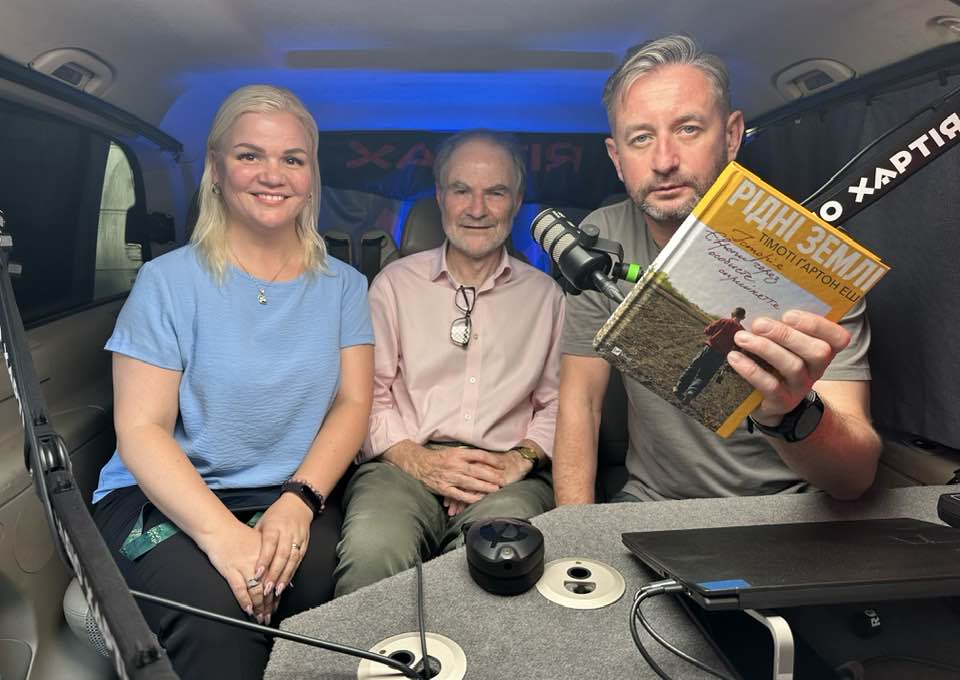
Photo: In the brigade where Serhiy Zhadan serves, they launched Radio Khartiya. They plan a project dedicated to the memory of fallen soldiers (facebook.com/serhiy.zhadan)
This way, we can process not only grief and sorrow – though that’s natural, too. For his mother, sister, and friends, it’s a huge loss, but they’ve found the strength to say that he is still with us. They don’t speak of him in the past tense. As long as his face is there, as long as his photo is on stage, he is alive, and he is with us.
For me, this is incredibly moving and intimate, showing the strength of these people who share their grief but find the strength to move forward and share their emotions and love.
– Every day at 9 a.m., we have a minute of remembrance. In the US, for example, certain rituals honor the fallen, such as lowering the flag, or at a specific time, all cars stop, and people salute the dead. What kind of tradition is still missing in Ukraine? What memory practices could we introduce?
– Society's and the state's attitude toward the families of the fallen should be dignified, respectful, and civilized, not dry, bureaucratic, and purely material. In Khartiya, we observe a minute of silence for the fallen.
I remember the last time I went to see the commander on some business was nine o'clock. He said, "We remember our boys and girls." Everyone stood up and remained silent for a minute. This wasn't done to show or to prove something to someone. It was sincere and genuine.
– Do you feel that death in war before 2022 and after the full-scale invasion is perceived differently?
– I don’t have that feeling because when you face it personally, and it's not just an abstract death that you read about, but someone you knew, someone whose funeral you attended, and you talk to people who knew, loved, and served with them, it has the same depth, sharpness, and pain as it always has.
Death is always death, and the number of deaths doesn’t diminish its significance. It’s the greatest loss there can be. And it’s the hardest part of this war – the death of our fellow citizens.
– In one interview, you said, "If you are ready to enter a realm so close to death, it means something is filling you, something is guiding you." Is this an internal feeling, a perception? Has your sense of death changed?
– No. It’s still very painful, sharp, and doesn't leave you indifferent. Recently, we were at a funeral. When you're at the Avenue of Glory, and you see these flags fluttering in the sun and wind, and there are more and more of them – it’s an extremely painful feeling. On the other hand, it gives you strength because you understand that these deaths cannot be in vain.
They require our continued work and our commitment. They must motivate, not weaken or demoralize. They should give us strength because it’s a sense of responsibility, dignity, and deep love for the people who died for you, for all of us.
– You are now a serviceman. Is Zhadan the fighter different from Zhadan the artist, poet, musician, and translator?
– Different because there is the concept of discipline and responsibility. You have to take it seriously. Our unit, Khartiya, is about humanity and respect for the soldier. And honestly, if you treat others with respect, you can expect to be treated with respect in return.

